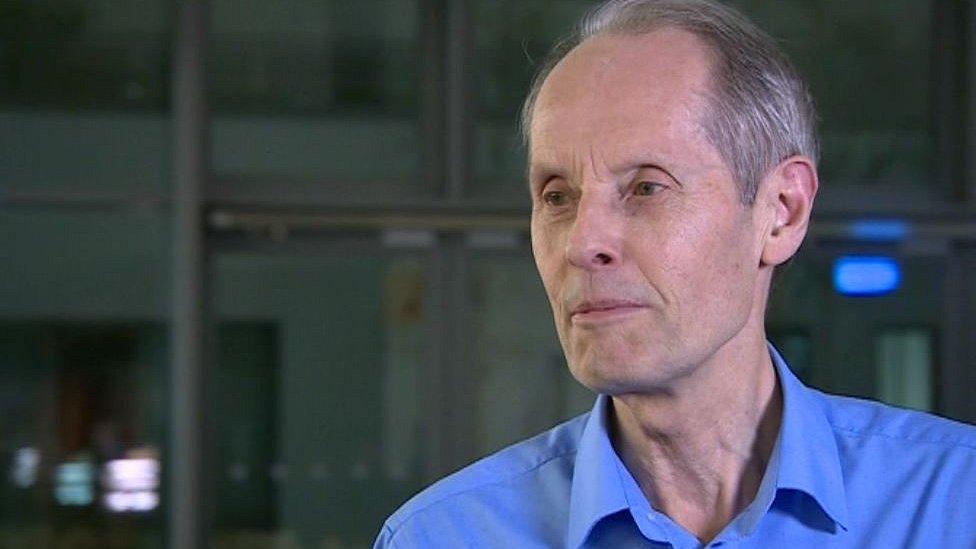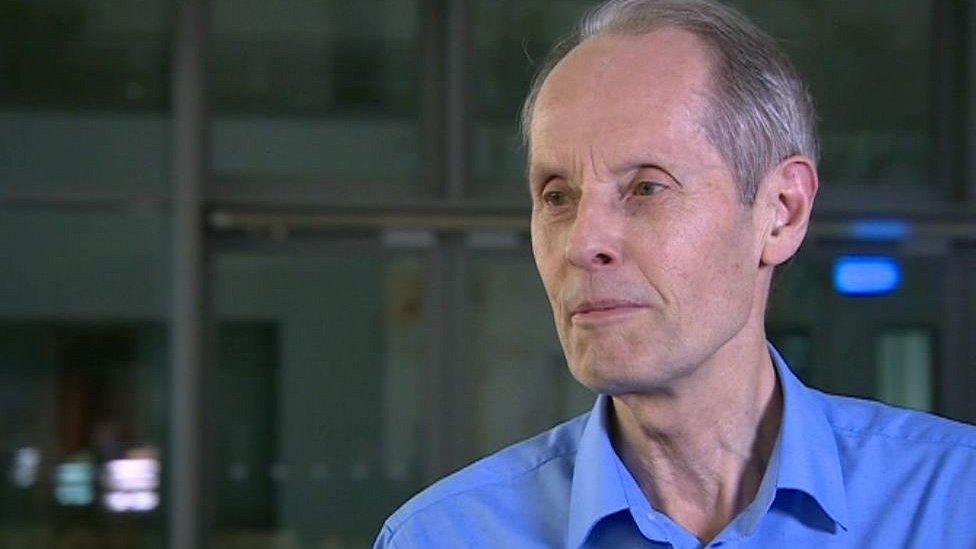Newcastle robot surgery inquest: 'Risk of further deaths'
- Published

Stephen Pettitt died after an operation to repair a valve in his heart
There "remains a risk of further deaths" from robotic heart surgery, a coroner has warned during an inquest into a man's death.
Stephen Pettitt, 69, died after an operation led by Sukumaran Nair at the Freeman Hospital, Newcastle, in 2015.
He was the first patient in the UK to undergo the pioneering treatment.
Recording a narrative verdict, coroner Karen Dilks said his death came as a "direct consequence of the operation and its complications".
"Mr Pettitt died due to complications of an operation to treat mitral valve disease and, in part, because the operation was undertaken with robotic assistance," she said.
Ms Dilks said Newcastle Hospitals NHS Trust should establish a policy covering the use of expert doctors, known as proctors, brought in to provide advice during new procedures.
Two proctors left during Mr Pettitt's operation and the inquest heard they could not have intervened in any case as they were not registered with the General Medical Council.
'Tragic outcome'
The coroner also said there was an "absence of any benchmark" for training on new intervention treatments.
The inquest heard Mr Nair had no one-to-one training on the Da Vinci device and had been "running before he could walk".
It was "more likely than not" that Mr Pettitt would have survived had conventional open heart surgery been used, with only a 1%-2% chance of him dying, it was told.
The trust's medical director, Dr Andy Welch, has apologised and said it had "failed to ensure the standard of care that would reasonably be expected of us with a tragic outcome".
The robotic heart programme was stopped after Mr Pettitt's death and "significant changes" had been made, he said.
Any outstanding recommendations by the coroner would be "implemented immediately", he added.
'Catalogue of errors'
Ms Dilks said she would also contact the Royal College of Surgeons and the Department of Health to ask them to consider whether national guidelines should be brought in.
In a statement after the inquest Mr Pettitt's family said an "investigation revealed a catalogue of errors including significant deficiencies in training and competence of the surgeon who had performed the procedure, who was subsequently dismissed".
"This was compounded by the fact that several observing clinicians left the theatre part way through the procedure, and were therefore unable to assist when difficulties arose," they said.
Mr Nair, who trained in India and London and previously worked at the Papworth Hospital in Cambridgeshire, now works in Scotland and no longer does robotic surgery.
- Published7 November 2018

- Published6 November 2018

- Published6 November 2018
